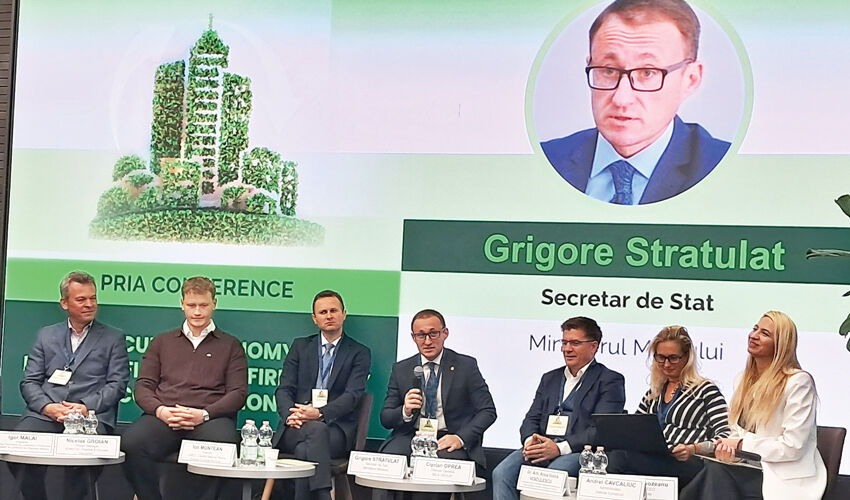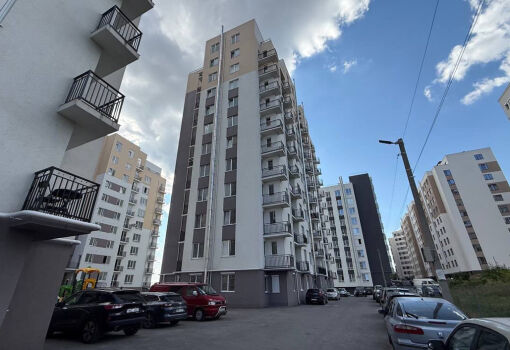
This was told by Grigore Stratulat, State Secretary of the Environment Ministry, at the conference “Cyclic Economy, Energy Efficiency and Fire Safety in Construction in Moldova”.
“Recently, Law No. 209 of 29-07-2016 on waste was amended, which will enter into force on September 22, 2025,” Grigore Stratulat said. – In particular, it was introduced a provision that in order to establish an integrated municipal waste management system, local public administration authorities shall ensure the allocation of land plots, development and operation of at least one center per 50,000 inhabitants for the collection and treatment of construction and demolition waste”.
To start with, two such sites will be established in Moldova, serving Chisinau and Balti, as the only cities in the country with populations exceeding 50,000. Work is now underway to organize tenders for the establishment of such depots.
“Currently, garbage generated during construction and renovation is stored in places not adapted for this purpose. No construction company knows where its waste goes,” Stratulat said.
After 2030, the European Union will prohibit the disposal of waste that can be recycled and used in the future. Moldova will adjust to this decision, the state secretary said.
However, some actions in this direction will be launched only after the approval of the Regulation on the processing and utilization of construction waste, which will be submitted for public discussion in the nearest future, the official said.
In principle, it is planned that waste generated during the construction of buildings, their demolition, as well as during the production of construction and finishing materials will be subjected to recycling.
Rodica Popricak, consultant of the Ministry of Environment, who was present at the conference, explained to Logos Press that the most capacious part of this waste will be crushed into crushed stone, which is always needed in the construction of buildings, roads and other infrastructure facilities. For this purpose, it is planned to use the equipment available at the quarries. And construction and demolition waste is supposed to be stored there as well.
Igor Malai, president of the Federation of Employers of Construction and Construction Materials Industry of Moldova, said that with the approval of the new rules, builders will have to revise the basic principles of design. Taking into account that someday the building they are about to construct will have to be demolished and the materials used in construction will have to be recycled. This will require training for professionals and a change in the mentality of the industry. And designers will have to think about the wider use of environmentally friendly materials.
Cristian Erbashu, the president of the Federation of Employers of Construction Companies of Romania, who attended the conference remotely, expressed the opinion that such a transition for Moldovan construction companies will not be something fundamentally new. Since many of them work in Romania, where the requirements for the recycling of construction waste and that which will be formed in many years have already been partially approved by law.
Two Moldovan producers of construction materials said that recycling is already a reality for them.
Nicolae Groian, project manager of the company SONOTIZ, which produces thermal and acoustic insulation materials, said that the company has been working in a closed cycle for three years already. That is, all the waste generated goes back into production. As an example, he cited glass mesh, a product that is non-flammable, environmentally friendly and 100% recyclable. The company exports it to Europe.
A representative of the Romanian company TeraPlast, which controls the Moldovan manufacturer of polymer pipes for water supply and sewerage PalPlast, said that the utilization and recycling of plastics is a worldwide problem. In 2019, 480 million tons of such products were produced globally, of which only 9% were recycled. By 2060, volumes are expected to reach 1,200 million tons.
“Recycling takes place in five stages: collection, sorting, washing, crushing and regranulation. We are already doing this. But it is not easy and expensive, in Romania we have support from the state.”
“I am a realist,” replied Grigore Stratulat. – Without investments and infrastructure, the adopted legislative acts will not work. And we simply don’t have a developed industry for processing right now. So we start with the laws, and as we move forward will look for the means to implement them.”
According to EU member states, more than 80% of construction waste consists of products of mineral origin (concrete, sand, etc.), about 15% – wood, up to 4% – metals. The rest is made up of other materials such as plastic, glass, cardboard, etc.

